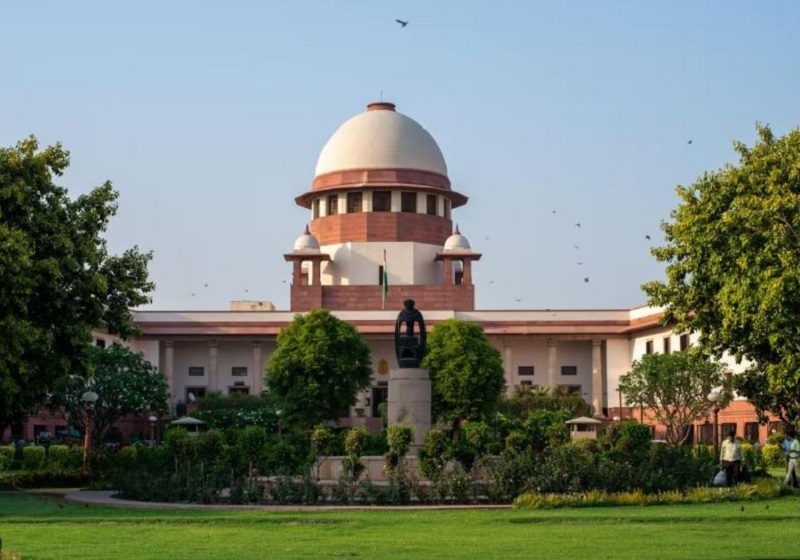
New Delhi: The Supreme Court on Tuesday turned down the plea to go back to election via ballot paper instead of EVMs and asked the Election Commission of India (ECI) whether 'there is any punishment for officials and authorities manipulating Electronic Voting Machines (EVMs)'.
A bench comprising Justice Sanjiv Khanna and Justice Dipankar Datta said that unless there is fear of stringent law and punishment, there is always a possibility of manipulation.
To this, the counsel for ECI replied that there is a provision for 'Breach of office punishment."
"We are not on the procedure. There is no specific provision about manipulation done, if at all," Justice Khanna asked.
The Court was hearing a batch of petitions seeking a thorough count of Voter Verifiable Paper Audit Trail (VVPAT) slips in elections.
The three petitioners showed their interest in the use of EVMs alongside VVPAT slips in elections.
One of the petitioners prayed that each EVM vote be tallied against VVPAT slips.
The plea filed by the Association for Democratic Reforms (ADR) said that VVPAT slips must be tallied with votes cast through EVMs so that citizens can confirm that their vote has been ‘counted as recorded’ and ‘recorded as cast.'
Advocate Prashant Bhushan, appearing for ADR, told the Court that either the polling process should return to ballot paper or all VVPAT slips should be counted and tallied with the votes shown by EVMs.
The Court turned down the plea to go back to election via ballot paper instead of EVMs and said, "We all know what happened when there were ballot papers. You may have but we have not forgotten. Anyway, we heard the three solutions. We do not want a debate on this now," Justice Khanna remarked.
The Court said that the system should not be doubted. Human intervention in the polling and counting process could lead to further problems and biases.
"Normally human interventions lead to problems and human weakness can be there which includes biases as well. The machine normally without human intervention will give you accurate results,” the court said.
The Court agreed that the problem arises when there is human intervention or when someone makes unauthorised changes to the software or machine. “If you have any suggestion to avert this, then you can give us that," the Court said.
Bhushan cited the example of Germany.
"What is the population of Germany," the bench asked.
"5-6 crores," Bhushan replied.
"My home state West Bengal has more population than Germany. We need to repose some trust and faith in somebody. Do not try to bring down the system like this," Justice Datta said.
The petitioners said that all VVPAT slips should be tallied with the EVMs instead of restricting it to only 5 EVMs which was being done presently.
The Court then suggested whether it would be possible to have an inspection of the EVM by an independent technical team.
The hearing will continue on April 18.







